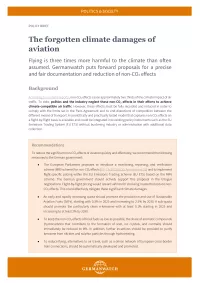
Flying is three times more harmful to the climate than often assumed. Germanwatch puts forward proposals for a precise and fair documentation and reduction of non-CO2 effects.

Flying is three times more harmful to the climate than often assumed. Germanwatch puts forward proposals for a precise and fair documentation and reduction of non-CO2 effects.
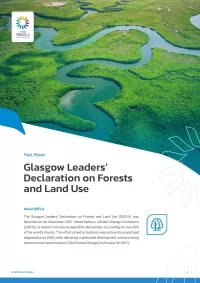
At the UN Climate Conference in Glasgow (COP26), several multilateral initiatives were launched. In this fact sheet, we took a closer look at the Glasgow Leaders' Declaration on Forests and Land-Use (GDFLU) and its potential to close the 2030 ambition gap and implement climate action more quickly.
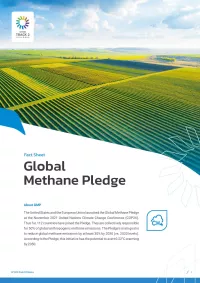
At the UN Climate Conference in Glasgow (COP26), several multilateral initiatives were launched. In this fact sheet, we took a closer look at the Global Methane Pledge (GMP) and its potential to close the 2030 ambition gap and implement climate action more quickly.
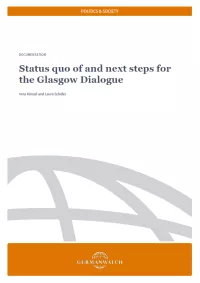
COP26 decided on the Glasgow Dialogue for parties and non-party stakeholders to discuss existing arrangements for funding activities to avert, minimize and address loss and damage. The first dialogue took place during the Bonn Climate Change Conference (SB 56) in June 2022. This briefing paper summarises its results in four key areas and makes recommendations concerning necessary next steps.


In their joint open letter, Germanwatch, Bread for the World, Friends of the Earth Germany, Misereor, DNR, WWF, the Climate Alliance, the Heinrich Böll Foundation and Environmental Action Germany appeal to the German government and call for stronger commitment to creating an international hydrogen market that is compatible with sustainable development and supports the just energy transition in partner countries.
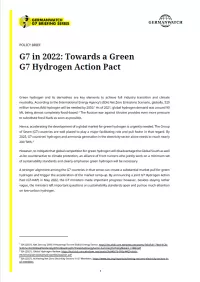
In May 2022, the G7 environment, climate, and energy ministers announced the launch of the G7 Hydrogen Action Pact (G7-HAP), which prioritises six areas for the G7 to support the development of a global low-carbon and green hydrogen market. Germany should use its remaining G7 presidency to specify these areas. Most importantly, the G7 should clearly focus their activities on green hydrogen and work on establishing sustainability standards right at the beginning of the market ramp-up.
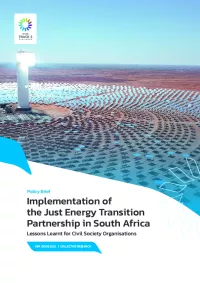
The Just Energy Transition Partnership (JETP), announced last year with South Africa, aims to reduce emissions in the energy sector and accelerate the coal phase-out process. The partnership, first announced in COP26 with the promised value of 8.5$ billion, was then followed by a G7 announcement for a similar partnership in India, Indonesia, Senegal, and Vietnam. As an important thread in the social fabric of many countries, it is crucial for CSOs to be involved in providing input and monitoring the partnership process, especially as Indonesia and India are preparing their own JETP.
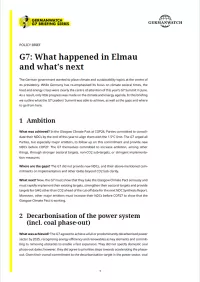
The German government planned on making climate and sustainability the main topics of its G7 presidency. In this briefing, we outline what the G7 Leaders’ Summit was able to achieve, which gaps remained, and where to go from there.
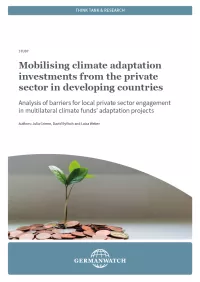
The climate crisis’ impacts are rapidly growing along with the concurrent need for adaptation investments. Those most vulnerable to climate change’s impacts, however, lack the resources to adequately respond to adaptation needs. The study aims to close a research gap by examining international climate finance’s capacity in mobilising adaptation finance from the private sector in developing countries.